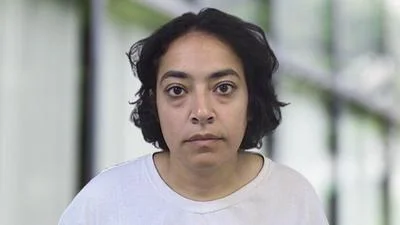In the wake of the Feb. 14 shooting at a Parkland, Florida, high school that left 17 people dead and 15 others injured, questions are being raised about the role new disciplinary procedures may have played in allowing the alleged shooter to plot his mayhem without detection.
In an article posted on City-Journal.org, a magazine from the Manhattan Institute for Policy Research, senior fellow Max Eden mulled whether pressure on schools to trim suspension and expulsion rates may have made schools less safe.
Ironically, the city of Parkland was named last year as the state’s safest city by the National Council for Home Safety and Security, according to a report in Time magazine. The council, which has since taken the reference off its website, based the ranking on crime statistics that showed seven violent crimes and 186 property crimes.

Senior Fellow Max Eden of the Manhattan Institute
| https://www.manhattan-institute.org/expert/max-eden
Eden noted that the Broward County school where the shooting occurred, Marjory Stoneman Douglas High School, was a key proponent of measures designed to disrupt the so-called school-to-prison pipeline. Once Florida’s leading site of in-school arrests, Broward’s leaders decided five years ago to stop involving police when students committed assault or used drugs on campus, Eden said. This cut arrests of students at the school by 63 percent over four years, to great fanfare from the Obama administration.
In the case of alleged Florida school shooter Nikolas Cruz, Eden says the teen’s previous brushes with school officials for fighting and bringing weapons to school could have been better handled with police involvement than by referrals to social workers.
“Would an arrest record have changed the judgment of the FBI agents who ignored the tip that Cruz wanted to kill his classmates?” Eden wrote in a Feb. 26 editorial on the City Journal’s website. “Certainly Cruz could not have legally purchased a gun if the 2016 social-services investigation determined that he was a threat to himself and others.”
In an interview with Chicago City Wire, Eden cautioned against saying the new disciplinary procedures created a dangerous climate or sent Cruz over the edge but instead argued that pressure on schools to get the numbers down played a role in his ability to fly under the radar.
“But it’s apparent that Cruz was not detected, he was not referred to the police, and that part of the reason why was because there was an explicit shift not to refer troubled kids to the police for things like fighting,” Eden said.
According to a report from the International Institute of Restorative Practices (IIRJ), Chicago officials are considering the implementation of similar low-discipline strategies in an effort to “end the school-to-prison pipeline by implementing restorative practices,” which are defined as problem-solving strategies that foster dialogue among participants in a conflict.
The IIRJ quoted behavioral health specialist Edwin Johnson with the Chicago Public Schools: “We’re focusing on creating a restorative culture,” and noted that Johnson says the schools are emphasizing “a broadly proactive approach.”
Cook County Commissioner Jesus "Chuy" Garcia, a Democrat seeking the 4th Congressional District seat being vacated by Rep. Luis Gutierrez (D-IL), told the Chicago Sun-Times: "We also need to eliminate the schools-to-prison pipeline and ensure that minorities aren’t disproportionately suspended or expelled."
But Eden says there is a danger in pressuring schools to keep law enforcement out of classroom discipline or to abandon suspensions and expulsions altogether.
“These things have to be done very conscientiously,” Eden said. “If the principals are acting with an eye toward the statistics rather than the students, that’s going to set up all sorts of negative dynamics.”
Eden said some teachers tell him their principals want to avoid shaming the district with a high number of suspensions and instead urge teachers to handle disciplinary matters instead of sending students up the chain of command, where a suspension or expulsion would be the result.
A remedy for such negative outcomes is the one undertaken by the University of Chicago Consortium on School Research, the Five Essentials School Reports, which Eden lauds for its ability to track whether students feel safe in a given school, plus other metrics designed to assess campus climate. According to the consortium’s statistics, schools with high marks in three of the five essentials have a tenfold better chance to raise students’ math and reading scores.
Eden argues that assessing school health and success qualitatively is better than simply focusing on declines in suspension rates.
“The big danger here, and one I think Chicago has done a better job at than most other school districts, is (judging) the success of these policies,” Eden told Chicago City Wire. “When numbers go down, policymakers declare success. Success isn’t how few students you get into trouble or how few students you punish for bad behavior, but success is how stable and healthy the school climate is.”






 Alerts Sign-up
Alerts Sign-up